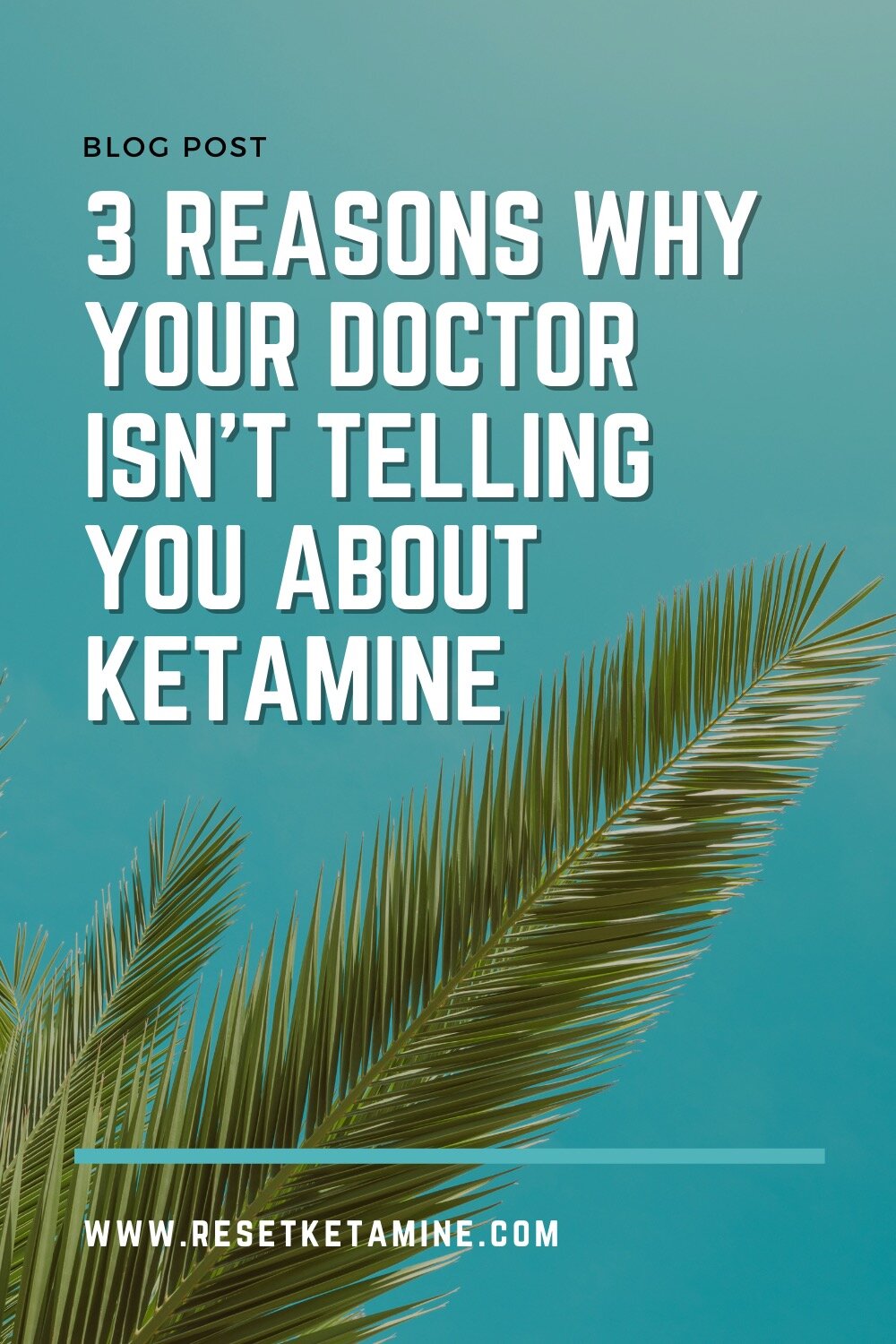You may have met someone who has benefited from ketamine for chronic pain or seen a video about how ketamine works to alleviate depression and anxiety. So you get all jazzed about trying ketamine infusions for yourself and you approach your doctor about it. Instead of getting helpful information and support to pursue infusions, you get a cold reception, a flat out “no”, or a simple shrug of the shoulders.
Why aren’t more doctors and mental health care professionals shouting from rooftops wanting to share this amazing treatment with you? The medical profession can be slow to change, and even slower to adopt new practices and new medicines. Not only does the medical scientists have to convince approving bodies that a medication or treatment is safe, they then have to get buy-in from the individual healthcare providers themselves.
Understanding why your doctor isn’t talking to you about ketamine, can help you better approach them about ketamine. The more you know, the more empowered you can be as a patient! So here are three reasons why:
1. They Simply Don’t Know about Ketamine:
When a future doctor goes to medical school they take in a lot of knowledge (and actually a lot of stuff they may never use!). They learn about ketamine as an anesthetic agent, but not as a treatment for mood disorders and chronic pain disorders. In residency (where a doctor really learns how to be a specialist) there are only a handful of specialities, namely emergency medicine and anesthesia, who regularly treat patients with IV ketamine. Many doctors will not recommend or treat a patient with something they did not train with or learned how to use. Also, if your doctor or mental health professional is not following the latest innovative treatments they may not know about the growing role of ketamine to treat your condition.
Learn more about ketamine’s fascinating history here!
2. They Simply Don’t Believe in Ketamine or Are Biased:
Doctors are humans, humans are creatures of habit. They can be resistant to change. They may not believe in using unconventional treatments, or don’t agree with using ketamine off-label to treat pain and mood disorders. Your doctor may have a religious or moral bias against medications that have a history of being a recreational drug or are dubbed “psychedelics” as ketamine can cause altered states of consciousness.
Explore more about why the medical community is slow to accept ketamine for treating mood disorders here.
3. They Don’t Know How to Advise you on the Use of Ketamine:
Maybe your doctor has seen that same video online, read the latest medical journal articles about ketamine, and even wants to encourage you to give it a try! Well they may not be recommending you to try ketamine because they don’t know where to refer you or how to best advise you. Maybe they know of a doctor who would be great for you, but lives on the other side of the country. Maybe there is no one they know in your local community they could refer you to or because they don’t have experience with it they don’t want you to get mistreated or hurt...so they simply don’t recommend it.
Learn about How To Find the Right Ketamine Clinic For You here.
Conclusion
So the next time you see your doctor and think about discussing ketamine with them, keep these reasons in mind. We hope this information will give you a little perspective on where your doctor is coming from when you hear their responses. If you sense your doctor is open to but unsure about ketamine, perhaps you now have an opportunity to share some knowledge with them!
CONTACT RESET KETAMINE
IF YOU OR SOMEONE YOU LOVE IS SUFFERING FROM ANXIETY, PTSD, DEPRESSION, OCD, MIGRAINES, FIBROMYALGIA, OR CHRONIC PAIN, PLEASE CONTACT US NOW FOR A CONSULTATION TO SEE IF YOU WOULD BE AN IDEAL CANDIDATE FOR KETAMINE INFUSIONS.
SERVING PALM SPRINGS, PALM DESERT, RANCHO MIRAGE, CATHEDRAL CITY, JOSHUA TREE, 29 PALMS, IDYLLWILD, REDLANDS, LOMA LINDA, BEAUMONT, BANNING, ONTARIO, RIVERSIDE, LOS ANGELES, ORANGE COUNTY, SAN DIEGO, HOLLYWOOD, LONG BEACH, SANTA MONICA, AND ALL OF CALIFORNIA.

![3 Reasons Why Your Doctor Isn’t Telling You About Ketamine [2020 Update]](https://images.squarespace-cdn.com/content/v1/5a8dfbc1cf81e0fb77ead442/1520489352243-F0H3L98Q4GQE6S5EA3GR/IMG_9684.jpg)



